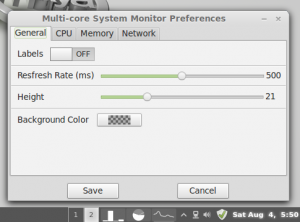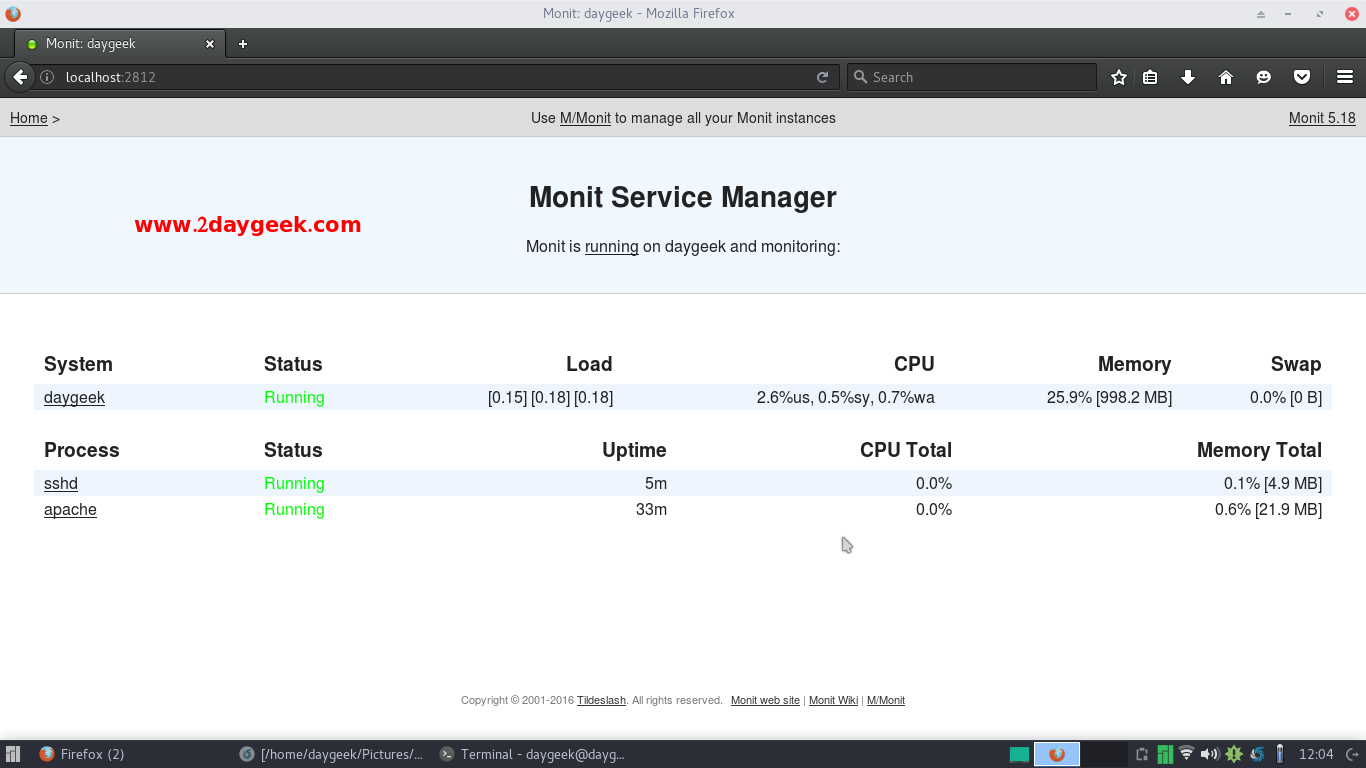

If there was an error, Monit will print an error message to the console, including the line number in the control file from where the error was found. For instance, $ monit -c /var/monit/monitrcīefore Monit is started the first time, you can test the control file for syntax errors: $ monit -t You can also specify the control file directly by using the -c command-line switch to monit. If this file does not exist, Monit will try /etc/monitrc and a few other places. The default location for monitrc is ~/.monitrc. The behaviour of Monit is controlled by command-line options and a run control file, monitrc, the syntax of which we describe in a later section. This means that you can use Monit to perform any type of check you can write a script for.įinally, Monit can be used to monitor general system resources on localhost such as overall CPU usage, Memory and System Load. Monit can be used to test programs or scripts at certain times, much like cron, but in addition, you can test the exit value of a program and perform an action or send an alert if the exit value indicates an error.

Even if a protocol is not supported you can still test the server because you can configure Monit to send any data and test the response from the server. Network test can be performed on a protocol level Monit has built-in tests for the main Internet protocols, such as HTTP, SMTP etc. TCP, UDP and Unix Domain Sockets are supported. Monit can monitor network connections to various servers, either on localhost or on remote hosts. This is also useful for security reasons - you can monitor the md5 or sha1 checksum of files that should not change and get an alert or perform an action if they should change. Monit can monitor these items for changes, such as timestamps changes, checksum changes or size changes. You can also use Monit to monitor files, directories and filesystems on localhost. Monit can also monitor process characteristics, such as how much memory or cpu cycles a process is using. if a DoS attack is in progress) Monit can stop or restart apache and send you an alert message. if sendmail is not running, monit can start sendmail again automatically or if apache is using too many resources (e.g. In contrast to many other monitoring systems, Monit can act if an error situation should occur, e.g. For instance sendmail, sshd, apache and mysql. Monit is particularly useful for monitoring daemon processes, such as those started at system boot time. You can use Monit to monitor daemon processes or similar programs running on localhost. Monit provides a HTTP(S) interface and you may use a browser to access the Monit program. Monit can perform various TCP/IP network checks, protocol checks and can utilise SSL for such checks. Monit logs to syslog or to its own log file and notifies you about error conditions via customisable alert messages.

Monit is controlled via an easy to configure control file based on a free-format, token-oriented syntax. You can use Monit to monitor files, directories and filesystems for changes, such as timestamps changes, checksum changes or size changes. Monit can start a process if it does not run, restart a process if it does not respond and stop a process if it uses too much resources.

Monit conducts automatic maintenance and repair and can execute meaningful causal actions in error situations. Monit is a utility for managing and monitoring processes, programs, files, directories and filesystems on a Unix system. Monit - utility for monitoring services on a Unix system SYNOPSIS
#MONIT LINUX INSTALL#
Monitorix includes its own HTTP server built in (which is listening by default on port 8080/TCP) to see the statistics graphs, so you aren't forced to install a third-party web server to use it. It consists mainly of two programs: a collector, called monitorix, which is a Perl daemon that is started automatically like any other system service, and a CGI script called monitorix.cgi. It has been created to be used under production Linux/UNIX servers, but due to its simplicity and small size can be used on embedded devices as well. Monitorix is a free, open source, lightweight system monitoring tool designed to monitor as many services and system resources as possible.


 0 kommentar(er)
0 kommentar(er)
